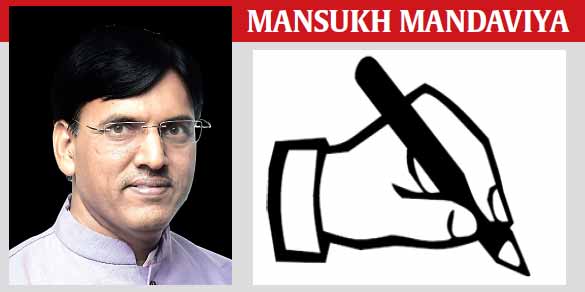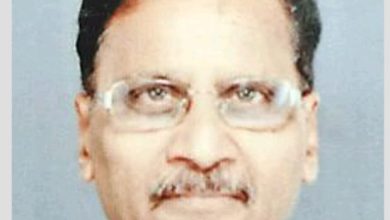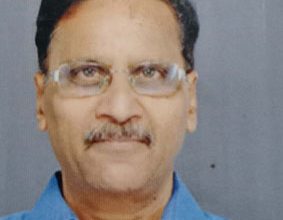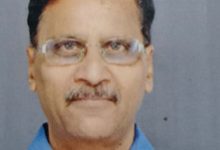India’s G-20 presidency laid the foundation of an inclusive global health architecture

A s India is in preparation to host the 18th G20 Heads of State and Government summit in New Delhi, we must acknowledge that the foundation of the bridge that connects the Global South and Global North to build a truly inclusive and holistic Universal Health Architecture has been laid when India’s Prime Minster Narendra Modi at the Health Ministerial Meeting in Gandhinagar said “Let us open our innovations for public good. Let us avoid duplication of funding. Let us facilitate equitable availability of technology.” It is heartening to see that the members of the powerful international forum have come a long way to act on the sum of the collective wisdom we gleaned during and since the pandemic years—real freedom begins only when the health of the humanity remains uncompromised. No amount of economic well-being can be enjoyed by societies, if a virus decides to play havoc, and we are ill-prepared to respond; that has been the underlying premise of deliberations on critical health priorities under India’s G20 presidency. Ministers, senior policy makers and multilateral agencies have unequivocally supported India’s G20 health priorities that highlighted complexities of accessibility and affordability of health services for all. In the process, we have successfully managed to build an overarching consensus that collective global action is the way forward to prevent, prepare and respond to future health emergencies, and our recovery from the pandemic must be equitable. Some of the crucial global action on health include building consensus on the principles and architecture of a medical countermeasure platform that can reduce existing inequities in access to vaccines, therapeutics, diagnostics and other solutions that form the arsenal to combat health crises; a global initiative on digital health that can capture strides of digital health initiatives of countries in a way to cut short the distance of other countries towards adapting solutions to their specific context; evolving our understanding of how climate and health affect each other so that specific solutions can be prioritised; and dipping into our reservoir of traditional medicines so that the health of our future can gain from the wisdom of our past.
Need for a Medical Counter Measures platform
The Covid-19 vaccination and diagnostic coverage across the globe revealed our entrenched inequities, which we must overcome. In an increasingly interconnected world, the threat from pathogen to one country is a threat to the world, and we must agree upon the principles and a global architecture that can enable equitable and timely access to vaccines, diagnostic tests, medicines, and other solutions for all countries. Such a global platform should be inclusive, which means it takes into consideration voices that face access barriers to solutions; efficient, which means it builds on existing capabilities and networks with speed; agile and adaptable; which means it has inbuilt flexibility to rapidly adapt to changing needs and scientific evidence; and be accountable, which means there is clear and shared responsibility in a transparent framework. It should make available affordable medical solutions at speed. Through G20, we have committed to a WHO led consultation with adequate representation of low- and middle-income countries on building an interim mechanism to implement such a platform without delay, so that we are not caught unprepared when the next health emergency strikes. The G-20 countries have underscored the need to bolster regional manufacturing capabilities of vaccines, therapeutic and diagnostic products particularly in developing countries as well as collectively nurture an ecosystem of R&D so that market failures in health-emergencies can be pre-empted.
Launch of Global Initiative on Digital Health
Digital Health has emerged as one of the most powerful accelerators towards achieving universal healthcare. Through the pandemic we in India have experienced the transformative potential of digital tools in public health During Covid-19, platforms such as Co-Win and e- Sanjeevani envisaged as digital public goods proved to be absolute gamechangers, completely democratising the way vaccines and healthcare services were delivered to over one billion people, including the most vulnerable population. India is already creating a national digital health ecosystem — Ayushman Bharat Digital Mission (ABDM) that empowers patients to store and access their medical records and share them with healthcare providers to ensure appropriate treatment and follow-ups.
That over 120 countries have developed their national digital health policies or strategies indicate the appetite for digital health tools across the world including low-income countries. But till a few days back there was no existing common platform and language for countries to exchange learnings on digital health initiatives, even when willing to do so.
Functioning in such disconnected silos in digital health means there are huge duplications around similar products. That is set to change after the launch of WHO led global initiative on digital health (GIDH) on 19th August under India’s G-20 presidency. The unanimous support of G- 20 countries on this initiative has ensured that the world will decisively move towards a global digital health regime from a fragmented digital health space to bridge the gaping digital-divide between countries.
This initiative aims to support countries to plan and implement high quality digital health systems and help patients access healthcare services based on a people-centric approach with the highest regard for privacy and ethics. Such a structure should offer means to ensure that the quality of digital health services offered to people worldwide meet a certain standard, a platform is created to capture and share the digital health journey of countries as well as highlight their needs in a way that one country can learn from the other shortening its long road to achieve healthcare for all.
Priortising Climate and Health
Despite climate consciousness seeping into all sectors, the complex links between how climate impacts health across the one-health spectrum that covers human health, animal health and plant health is yet to be fully decoded. India’s presidency has for the first time acknowledged the need to unravel these invisible links through G-20 so that we can prioritise solutions. G-20 countries have committed to prioritise low-carbon, high-quality sustainable and climate resilient health systems, to ensure that our health sector is not becoming a laggard at a time when all sectors are doing their bit to attain netzero goals. In our outcome document, G- 20 countries have also promised to tackle anti-microbial resistance (AMR) through the one-health approach.
Role of Traditional Medicine
At a time when the world over there is a revolution around integrated medicine promoting holistic health and wellness, we think it is our responsibility to revive the potent traditional medicine systems and offer their untapped benefits to the humanity through global groups like G- 20. Last year, Our Hon’ Prime Minister Shri Narendra Modi inaugurated the WHO-Global Centre for Traditional Medicine at Jamnagar in Gujarat and opened the doors of our ancient wellness wisdom for the world. We are taking that legacy forward in G-20 with member countries recognizing the potential role of evidence-based traditional and complementary medicine in health. “Aarogyam paramam bhagyam, swasthya sarvartha sadhanam” says a timeless shloka, meaning “Freedom from diseases is the ultimate destiny, and good health the basis for achieving every other wealth”. We at G-20 after the humbling experience of the pandemic, have paid heed, and decided that the time to act is now.
(Author is Union Health and Family Welfare Minister, India)






